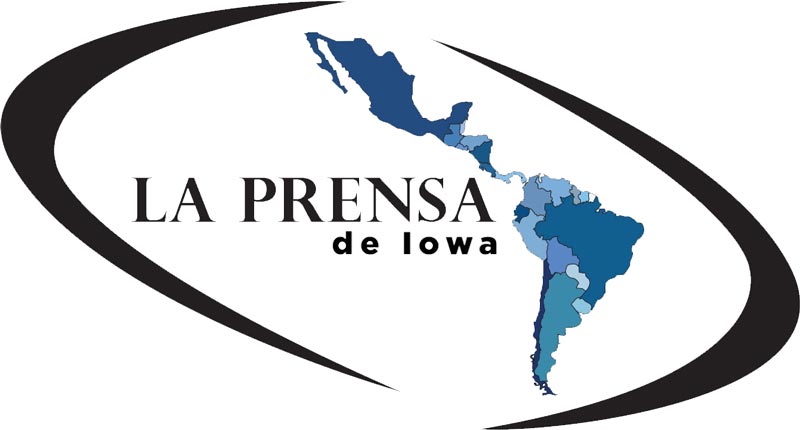Migración refuerza guías acerca de peticiones conyugales con menores de edad
/English translation provided at the end.
LA PRENSA
Redacción
El Servicio de Ciudadanía e Inmigración de Estados Unidos (USCIS, por sus siglas en inglés) anunció el fin de semana pasado la publicación de guías adicionales (PDF, 222 KB) en torno a la adjudicación de peticiones conyugales que involucren a menores de edad, en seguimiento a la actualización de las políticas de la agencia realizada en febrero.
Las guías, publicadas como parte de una actualización al Manual de Campo para Adjudicadores de USCIS (AFM, por sus siglas en inglés) instruyen a los oficiales a realizar entrevistas adicionales para ciertas peticiones conyugales relacionadas al Formulario I-130 en las que se involucre a un menor.
Generalmente, la autenticidad de las relaciones conyugales es evaluada en persona por USCIS cuando el cónyuge extranjero solicita un ajuste de estatus, o por el Departamento de Estado cuando el cónyuge extranjero solicite una visa de inmigrante. Sin embargo, las peticiones conyugales por medio del Formulario I-130 que involucren a un menor conllevan consideración especial debido a las vulnerabilidades asociadas con matrimonios que involucren a un menor.
Por lo tanto, USCIS está en proceso de modificar sus políticas para requerir entrevistas en persona en esta etapa temprana para ciertas peticiones del Formulario I-130 que involucren cónyuges menores de edad.
“Como parte de nuestros esfuerzos continuos para reforzar las guías acerca de peticiones conyugales que involucren menores, hemos instruido a los oficiales de USCIS conducir una entrevista adicional en persona en las etapas tempranas del proceso de inmigración en ciertas peticiones que requieren escrutinio adicional”, dijo el director de USCIS L. Francis Cissna.
Agregó que "aunque USCIS ha tomado acción a la máxima extensión posible para detectar y examinar de cerca las peticiones conyugales que involucren menores, el Congreso debe atender esta situación al proveer más claridad bajo la ley a los oficiales de USCIS”.
Realizar las entrevistas más temprano en el proceso de petición del Formulario I-130 provee a USCIS una oportunidad adicional para verificar información contenida en la petición y evaluar la autenticidad de la relación conyugal que se reclama. Los oficiales de USCIS conducirán ahora entrevistas para las siguientes peticiones conyugales relacionadas al Formulario I-130, como parte de la adjudicación de cualquier petición I-130 en la cual:
El peticionario o beneficiario sea menor de 16 años de edad al momento de la presentación; o;
El peticionario o el beneficiario tenga 16 o 17 años de edad al momento de la presentación y hay 10 años o más de diferencia entre las edades de los cónyuges.
Aunque no hay requisitos legales de edad para pedir a un cónyuge o ser patrocinado como beneficiario conyugal, USCIS publicó una guía a principios de este año en la que se detallan los factores que los oficiales deberán tener en cuenta al evaluar las peticiones conyugales I-130 que involucren a un menor.
USCIS considera si la edad del beneficiario o del peticionario en el momento en que se celebró el matrimonio viola la ley del lugar de celebración. Los oficiales también consideran si el matrimonio se reconoce como válido en el estado de EE.UU. donde reside actualmente la pareja o presumiblemente residirá y si no viola la política pública del estado.
En algunos estados y en algunos países extranjeros, el matrimonio con un menor de edad puede permitirse bajo ciertas circunstancias, incluso cuando hay consentimiento de los padres, una orden judicial, la emancipación del menor o el embarazo de la menor.
Google Translation
The US Citizenship and Immigration Service (USCIS) announced last weekend the publication of additional guides (PDF, 222 KB) on the adjudication of spousal petitions involving minors, following the update of the agency's policies carried out in February.
The guides, published as part of an update to the Field Manual for Adjudicators of USCIS (AFM, for its acronym in English) instruct officers to conduct additional interviews for certain spousal petitions related to Form I-130 in which they are involved in a minor.
Generally, the authenticity of marital relationships is evaluated in person by USCIS when the foreign spouse requests an adjustment of status, or by the Department of State when the foreign spouse applies for an immigrant visa. However, spousal petitions through Form I-130 involving a minor carry special consideration due to vulnerabilities associated with marriages involving a minor.
Therefore, USCIS is in the process of modifying its policies to require in-person interviews at this early stage for certain Form I-130 petitions involving minor spouses.
"As part of our ongoing efforts to strengthen guidance on spousal petitions involving minors, we have instructed USCIS officials to conduct an additional in-person interview in the early stages of the immigration process on certain petitions that require additional scrutiny," he said. the director of USCIS L. Francis Cissna.
He added that "although USCIS has taken action to the maximum extent possible to detect and closely examine spousal petitions involving minors, Congress must address this situation by providing more clarity under the law to USCIS officials."
Conducting interviews earlier in the Form I-130 petition process provides USCIS with an additional opportunity to verify information contained in the petition and evaluate the authenticity of the marital relationship claimed. USCIS officers will now conduct interviews for the following spousal petitions related to Form I-130, as part of the adjudication of any I-130 petition in which:
The petitioner or beneficiary is under 16 years of age at the time of filing; or;
The petitioner or beneficiary is 16 or 17 years of age at the time of filing and there are 10 or more years of difference between the ages of the spouses.
Although there are no legal age requirements to petition a spouse or be sponsored as a marital beneficiary, USCIS issued a guide earlier this year that details the factors that officers must consider when evaluating spousal petitions I-130 that involve a minor.
USCIS considers whether the age of the beneficiary or the petitioner at the time the marriage was celebrated violates the law of the venue. Officials also consider whether the marriage is recognized as valid in the US state. where the couple currently resides or presumably will reside and if it does not violate the public policy of the state.
In some states and in some foreign countries, marriage with a minor may be allowed under certain circumstances, even when there is parental consent, a court order, the emancipation of the child or the pregnancy of the child.
























